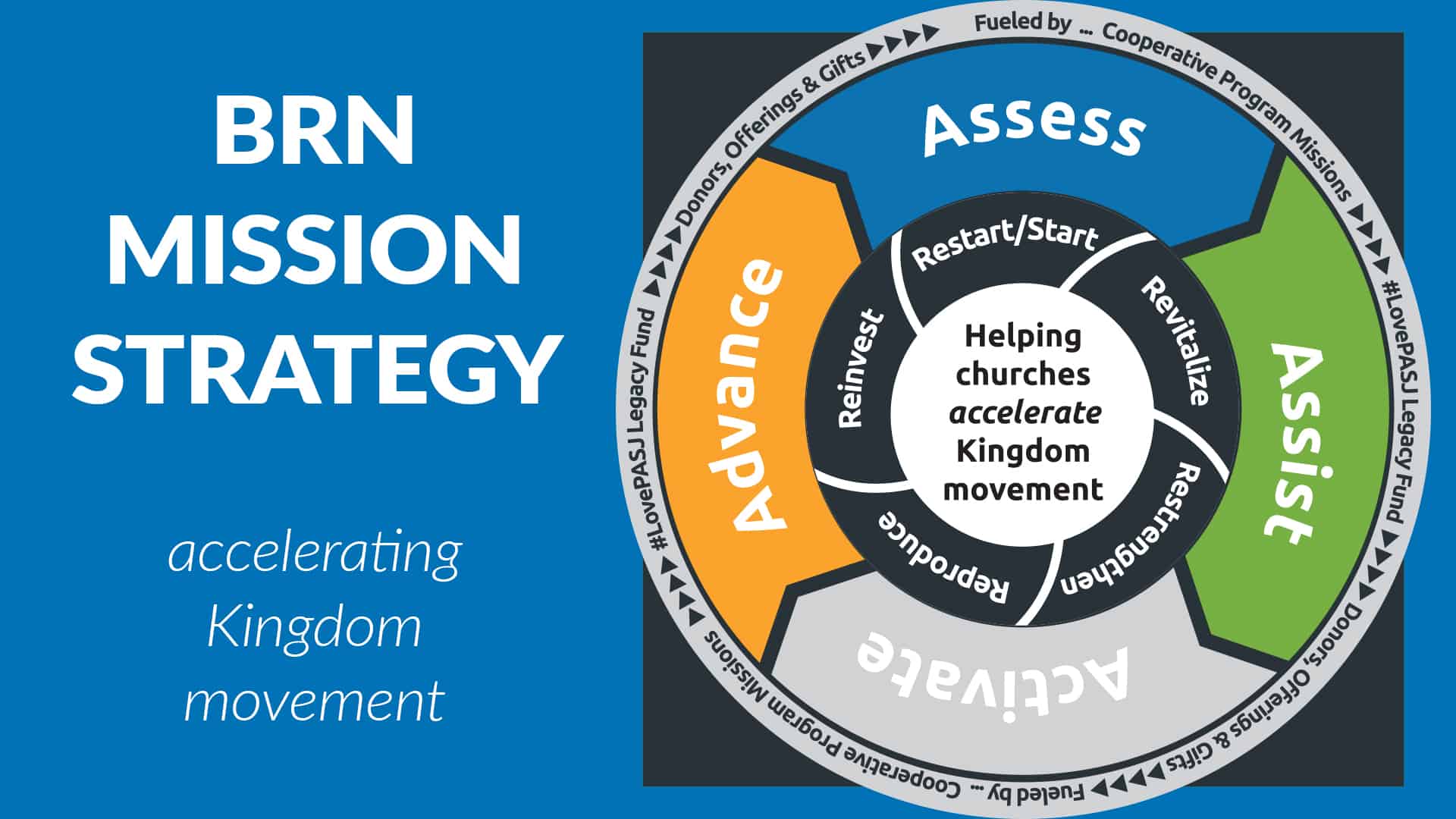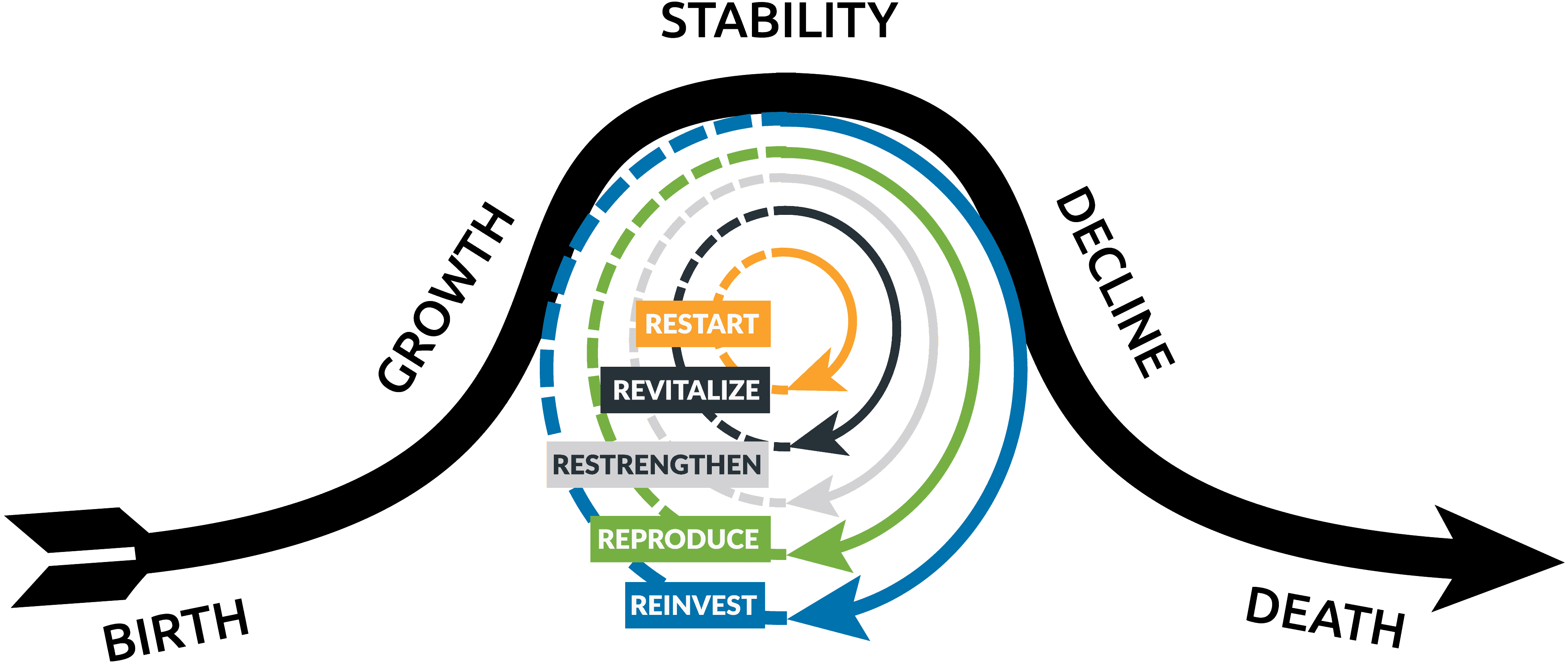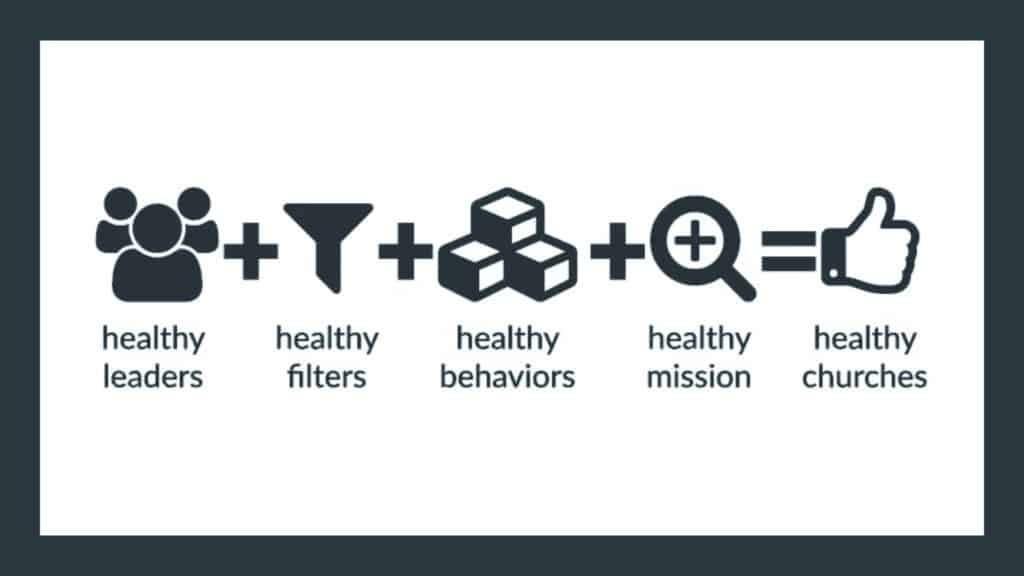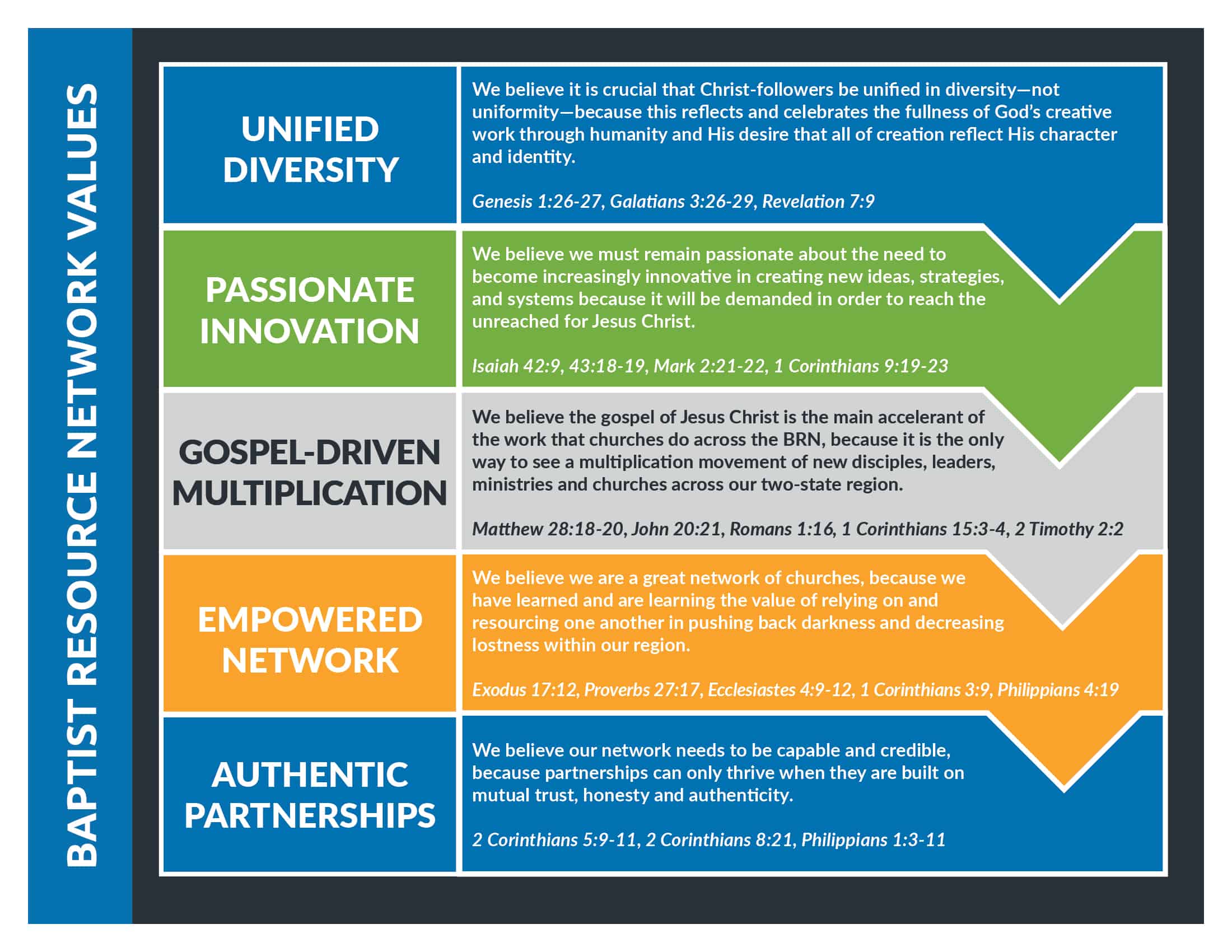Our Vision: That every church in Pennsylvania and South Jersey is a healthy multiplying church.

Within God’s Kingdom, every person, every pastor, and every church has a next step. The BRN desires to…
ASSESS
Discover Your Current Reality
An honest and detailed look at your overall ministry, defining where you’ve been, determining where you are, and discovering where you can go.
ASSIST
Determine Your Next Step
Interpreting what you have discovered, prioritizing a next step, and developing fresh strategies to meet the needs and vision of that next step.
ACTIVATE
Implement Your Next Step
Encouraging individuals, ministries, and churches to implement strategies and goals developed by the assistance of the BRN and the guidance of the Holy Spirit.
ADVANCE
Help Others with Their Current Reality
Enabling churches who exhibit dynamic biblical behavior and movement (moving and leading out) to contribute to the growth and advancement of the Kingdom within the BRN and beyond.
The BRN helps churches at every stage of their lifecycle

CHURCH
MULTIPLICATION
The BRN has a strong system in place to recruit and train new church planters. First-year church planters focus on the healthy behavior of missional engagement. Second-year planters focus on intentional discipleship. Third-year planters focus on leadership development. By the time they are stable churches, they are accustomed to practicing these healthy behaviors.
CHURCH
REPRODUCTION
A stable church teaches disciples to make other disciples who make other disciples. Their pastors are planning for reproduction through leadership development. Their ultimate desire is to reproduce disciples, leaders, new ministries, and new churches. These outwardly-focused behaviors prevent a church from slipping into “self-preservation mode,” which is unfaithful, and ultimately unfruitful. The BRN can teach you to stay on mission.
CHURCH
REVITALIZATION
A healthy church is always looking for ways to maintain a strong connection to missional engagement, intentional discipleship, and leadership development. When a church starts to decline, they are likely neglecting one of these key behaviors. The BRN can help you identify and address these issues at the first signs of decline so that your church might be revitalized before it dies.
CHURCH
RESTARTING
A church that fails to revitalize or reproduce can still be an effective tool for the Kingdom by choosing to close their doors and invest their remaining people and assets into a new church. By intentionally closing and passing their assets on to a new congregation, they are leaving a legacy of faith within their community that may sprout new fruit in the next season. The BRN can help you close well.

HEALTHY
LEADERS
We care about your health and the health of your family. Your fellow leaders in the BRN are your best source of no-nonsense talk about how you are REALLY doing. We want you to find connections with other leaders in the BRN who will help you maintain a healthy YOU. This is essential, which is why healthy churches start here.
FAMILY CARE
One key resource in BRN is Family Care. Ministry can be exceptionally lonely, so the extended support network that the BRN provides is invaluable to our partner pastors. We offer prayer encouragement and special funds for pastors when they face unexpected major life events. With assistance from the North American Mission Board, we also provide ongoing encouragement to church planter families as they start their new journey of planting a church. We sponsor retreats to help refresh leaders, pastor’s wives, and women throughout the BRN.
HEALTHY
FILTERS
All of the best behaviors in the world can be applied in the wrong way. A common example would be that we spend time trying to build the church instead of building the Kingdom. Jesus clearly said that He would build His Church, while we should seek first the Kingdom.
For example, when we serve the poor, are we simply trying to recruit people to join our church, or are we being Kingdom-minded? Can we celebrate when someone is discipled better by a different local congregation or are we secretly bitter when they leave ours? Would we be willing to send our best leaders out to plant another church and expand the Kingdom, or do we want to hold on to them to build up our own local church?
Furthermore, without the wisdom of the Holy Spirit, we could be tempted to misapply good biblical behaviors in untimely ways.
For this reason, we teach healthy churches to filter all of their activities through the filters of the Kingdom of God and Prayer. Kingdom keeps our focus on the glory of the King instead of our own fame. Prayer keeps us in a humble posture before our King so that He might direct our steps.
HEALTHY
BEHAVIORS
Missional engagement, intentional discipleship, and leadership development are three key behaviors of healthy churches.
Missional Engagement is God’s people taking the gospel of Jesus Christ to a world that is separated from a relationship with a Holy and Eternal God. Engaging people missionally with the gospel involves the church going out to people rather than just inviting and/or expecting the people to come to them.
Intentional Discipleship is developing spiritual maturity within Christ-followers through deliberate learning and accountability in peer-to-peer relationships and/or small groups. Intentional discipleship brings the Bible to life in Christ-followers.
Leadership Development is the deliberate and systematic activity by church leaders to purposely influence and develop others to become leaders within the Body of Christ. Every church needs leaders, especially for its future. The Kingdom needs leaders to advance the gospel around the world. Leadership development expands the capacity of individual Christ-followers to assume leadership roles within the Body of Christ, both locally and globally.
HEALTHY
MISSION
Our mission is to help you multiply at every level. We want disciples who make new disciples, ministries that birth new ministries, leaders who replicate new leaders, and churches that plant new churches. We believe that this mission flows directly from the Great Commission in Matthew 28:18-20.
18 Jesus came near and said to them, “All authority has been given to me in heaven and on earth. 19 Go, therefore, and make disciples of all nations, baptizing them in the name of the Father and of the Son and of the Holy Spirit,20 teaching them to observe everything I have commanded you. And remember, I am with you always, to the end of the age” (CSB).
HEALTHY
CHURCHES
With almost 14 million lost people in Pennsylvania and South Jersey, it is essential that we embrace the mission of getting the church out of its buildings and into the midst of our communities.
Healthy churches develop a discipleship strategy to move people from spiritual infancy to spiritual parenthood. Solid biblical preaching is a component of intentional discipleship, but is not the complete picture. In Acts 20:20, for example, we see the example of public teaching AND house-to-house teaching. We also hear about spiritual life stages throughout the Bible.
A church that does not develop leaders is one generation away from closing. Healthy churches help every person consider their contribution to Kingdom growth, and every leader consider their contribution to future ministries.
Multiplication is bigger than mere reproduction. We want to help you train up leaders who develop other leaders and plant churches that plant other churches.
MISSIONAL ENGAGEMENT
Missional Engagement is defined as God’s people (Christ-followers and His Church) taking the good news (gospel) of Jesus Christ to a world that is separated from a relationship with a Holy and Eternal God. Engaging people missionally with the gospel involves the church going out to people rather than just reaching out and/or expecting the people to come to them.
Biblical References: Matthew 28:19, Mark 16:15, Acts 1:8
INTENTIONAL DISCIPLESHIP
Intentional Discipleship is developing spiritual maturity within Christ-followers through deliberate learning and accountability in peer-to-peer relationships and/or small groups. Intentional discipleship brings the Bible to life in Christ-followers, and what they learn moves from their heads, to their hands, then to their hearts, as it translates into habits that produce growth (spiritual maturity) in their lives. Further, through intentional discipleship, the disciple becomes a disciple-maker who leads others to become and know how to follow Christ.
Biblical References: Matthew 4:19, Matthew 28:20
LEADERSHIP DEVELOPMENT
Leadership Development is the deliberate and systematic activity by church leaders to purposely influence and develop others to become leaders within the Body of Christ. Every church needs leaders, especially for its future. The Kingdom needs leaders to advance the gospel around the world. Leadership development expands the capacity of individual Christ-followers to assume leadership roles within the Body of Christ, both locally and globally.
Biblical References: Ephesians 4: 11‐12, 2 Timothy 2:2
How We Measure Success
When our churches have/are:




